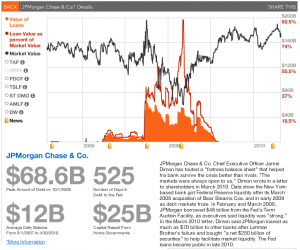Mitt Advocates Taking Healthcare from Retirees to Give Money to Bailed Out Banks
 Someone gave Mitt Romney a shovel just in time to dig
Someone gave Mitt Romney a shovel just in time to dig shit snow in MI for the next two weeks. There’s a lot that is fact-impaired in this op-ed doubling down on the “let GM go bankrupt” (starting with the lack of funding for a bankruptcy, meaning a managed bankruptcy was impossible).
By the spring of 2009, instead of the free market doing what it does best, we got a major taste of crony capitalism, Obama-style.
Thus, the outcome of the managed bankruptcy proceedings was dictated by the terms of the bailout. Chrysler’s “secured creditors,” who in the normal course of affairs should have been first in line for compensation, were given short shrift, while at the same time, the UAWs’ union-boss-controlled trust fund received a 55 percent stake in the firm.
He’s complaining, of course, that VEBA (the trust fund run by professionals that allowed the auto companies to spin off contractual obligations–retiree healthcare–to the unions) got a stake in Chrysler while Chrysler’s secured creditors took a haircut.
So, in part, he’s basically complaining that the bailout preserved the healthcare a bunch of 55+ year old blue collar workers were promised. He’s pissed they got to keep their healthcare.
He’s also complaining that banks took a haircut, as would happen in any managed bankruptcy.
But it’s more than that. He’s complaining that a bunch of banks that themselves had been bailed out had to take a haircut. He’s complaining, for example, that JP Morgan Chase, Chrysler’s largest creditor at the time and the recipient, itself, of $68.6B in bailout loans, had to take a haircut on $2B in loans to Chrysler.
Mitt’s op-ed makes him sound a lot like Jimmy Lee, Chase’s top negotiator on the auto bailout, who,
demanded to know why, if the government thought banks important enough to give them tens of billions in TARP money, it wanted to squeeze them on [the Chrysler] deal.
I guess Mitt, too, thinks the banks are so important they should take precedence over retiree healthcare, too.
But as the kind of bankster who, at Bain, relied on government subsidies to fund his “restructurings” that ended up taking people’s jobs and healthcare, that’s not all that surprising.
Still, the UAW retirees who still have healthcare today instead of Jamie Dimon having another yacht probably don’t feel the same way as Mitt does.
